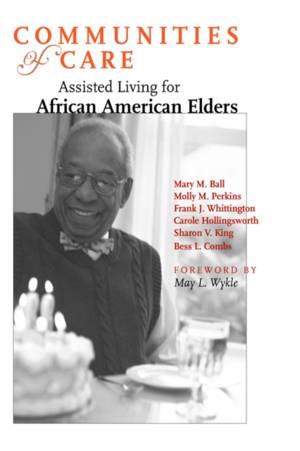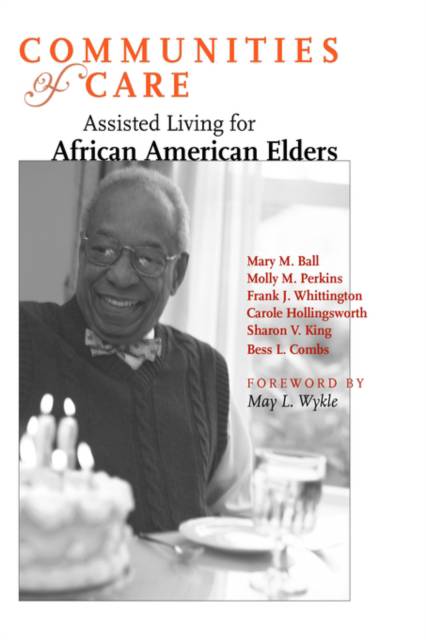
- Retrait gratuit dans votre magasin Club
- 7.000.000 titres dans notre catalogue
- Payer en toute sécurité
- Toujours un magasin près de chez vous
- Retrait gratuit dans votre magasin Club
- 7.000.0000 titres dans notre catalogue
- Payer en toute sécurité
- Toujours un magasin près de chez vous
Communities of Care
Assisted Living for African American Elders
Mary M Ball, Molly M Perkins, Frank J Whittington, Carole Hollingsworth, Sharon V King, Bess L CombsDescription
Very little is known about why and when African American elders seek formal long-term care, or about the characteristics of assisted living environments they consider most desirable. Drawing on qualitative studies conducted between 1998 and 2001, the authors of Communities of Care provide important information on historic and current trends in assisted living systems serving African Americans.
Focusing on six facilities that have become models of long-term care for African Americans, the authors shed light on the daily lives of the people who live, work, and visit these "communities of care."With detailed profiles of the facilities, interviews, and case histories of care recipients, the authors explore both the institutional and personal characteristics of the facilities and the issues central to their residents.
This definitive work brings to the forefront critical questions about how race, gender, and culture affect the quality of, access to, and cost of care. These questions have broad implications for the policy, administration, and operation of assisted living.
Spécifications
Parties prenantes
- Auteur(s) :
- Editeur:
Contenu
- Nombre de pages :
- 312
- Langue:
- Anglais
- Collection :
Caractéristiques
- EAN:
- 9780801881947
- Date de parution :
- 01-10-05
- Format:
- Livre relié
- Format numérique:
- Genaaid
- Dimensions :
- 160 mm x 237 mm
- Poids :
- 580 g

Les avis
Nous publions uniquement les avis qui respectent les conditions requises. Consultez nos conditions pour les avis.






